Far Away Eyes’ Deeper Look: Supernatural 12.03 “The Foundry”
Sometimes, to better understand or grow the Supernatural universe, we must examine secondary characters center stage. By doing so, we grow closer to the Winchester brothers and learn about another person within their world.
It allows us to explore grief and resurrection. It allows us to build on family in new ways—beyond strictly just Sam and Dean’s vision of it. Exploring secondary characters gives us fresh ground and the ability to relate even more to the brothers, too. And yet, it isn’t often that those secondary characters are women—and it isn’t often that we see them enter onto a journey to find their own power and strength. That’s exactly the story “The Foundry” uses to expand the Supernatural universe. It does so effectively and beautifully. In both Rowena’s struggle for freedom and Mary’s struggle with grief, we see these powerful women make their own choices—and their own way into the wider world.
First, let’s examine the search Castiel and Crowley have for Lucifer.
Castiel catches wind of the news about Vince and a man with red eyes in Cleveland. He’s certain that he may have a lead on Lucifer’s whereabouts and informs the Winchesters, “No. The Devil is free because of me, finding him is my responsibility.” He’ll do this alone—or so he thinks until he runs into Crowley after questioning Vince’s bandmate.
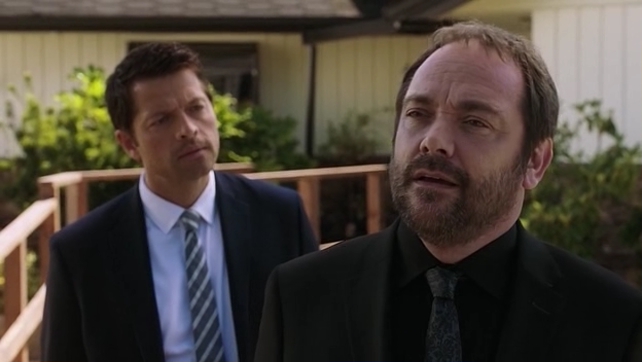
The lead takes them next to an address on some postcards found by Crowley—the address for Vince’s sister. She informs them that he had been there. Castiel quickly assesses that the woman had been healed. Needing more information as to where Vince would have gone next, Castiel informs her that the person that had healed her was “something else, old and evil, I think a part of you knows that. We don’t want to hurt Vince. We want to help him,” and that really she should tell them where he’d go next. She tells him, “But he did it cold—like it was nothing to him—like he was running an errand.” She’s certain he might head for a cabin Vince owns—but also gives them the tip that her brother hadn’t been alone. He had a “red-headed broad, didn’t say much” with him: Rowena.
This gives Castiel some ammunition to tease the former King of Hell. He taunts, “No, actually I think it’s sweet. I thought your motivation was ambition and revenge. Now I know you just want to save your mother.”
And yet, despite this, it won’t be either Castiel or Crowley that saves Rowena. It’ll be Rowena herself—a testament to her own strength, wile, and power.
Chained by Lucifer and at his beck and call, he’s demanding that she make his current vessel more permanent. He quips, “You got any witch spells locked up in that witchy brain of yours? I thought this one would last longer before going all Keith Richards on me” If she doesn’t do as told, Lucifer’s coldly informed her that he’ll simply snap her neck again and then rip her head clean off so she can’t simply come back to life. He wants her magic—even though he knows she’s a threat to him due to her knowledge of the Book of the Damned. Lucifer will get what he wants and then dispose of her when she’s no longer useful.
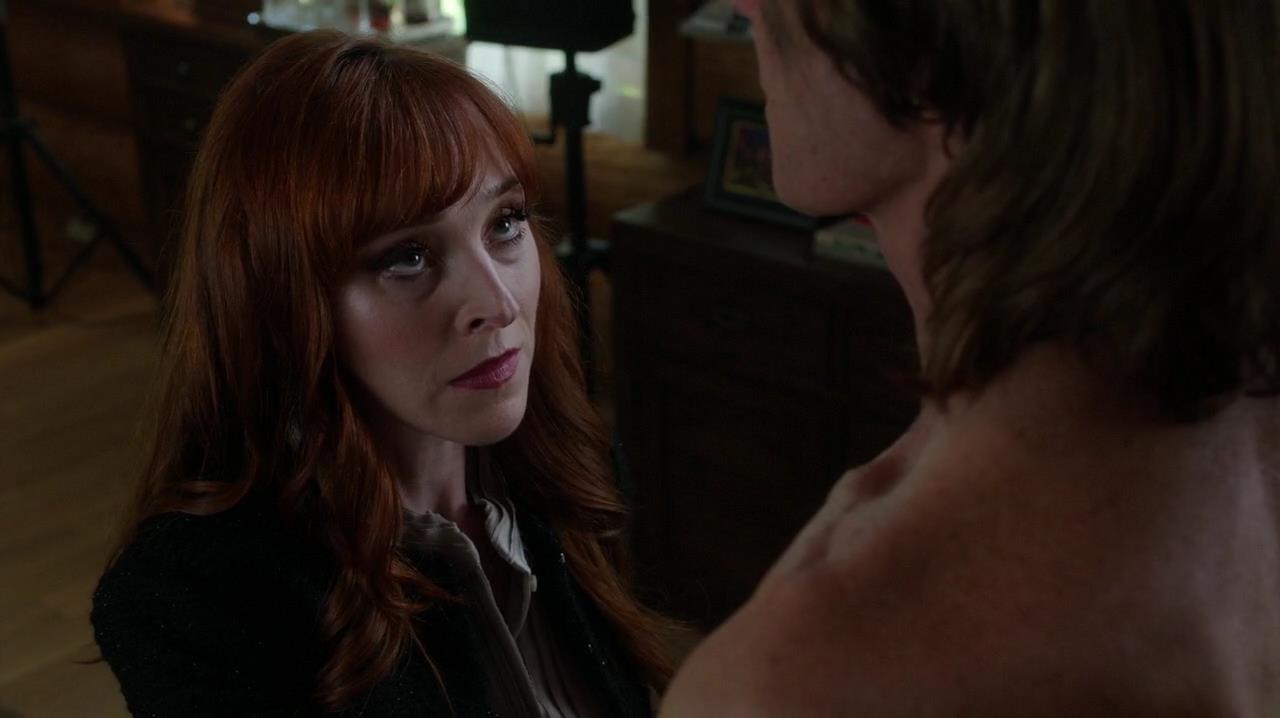
Rowena is clearly aware of this. She’s stiff in her address of him as “my liege” and “my lord.” She’s careful to be as complacent in her appearances as possible. Anything he asks she’ll try to provide to the best of her ability—and she won’t make any promises that aren’t backed up with real magics. He wants her to make a permanent vessel—she knows that it isn’t possible with the known magic out there. She can, however, make a spell of her own device that should hold.
Lucifer, tripped on the word “should,” wants a more definitive answer. She promises that it will last and proceeds to draw the design on his chest. As she circles him, Rowena promises, “I can be useful beyond this spell.” She’s teetering on the edge of one of the three bad outcomes Crowley fears: that she’ll offer her services to the biggest bad on the block.
And yet, in true Rowena fashion, this submissive facade is all an act. She has no intention of remaining Lucifer’s toy or tool. She won’t wait for him to grow tired of her and kill her. Rowena refuses to endure the fear of a falling ax at any time. Instead, she’s cleverly devised a way out of her predicament of her own accord. As she completes the spell, Rowena utters the words with a vindictive edge. Instead of healing and restoring Lucifer’s vessel to a permanent condition, she’s sped up the decaying process. She crows, “If you thought Keith Richards was bad, try Iggy Pop!”
Rowena must act fast. Lucifer, struggling to move as his vessel falls apart, charges. She’ll only have so much time before he can reach her and kill her. Rowena shouts another spell and sends Lucifer off to the “bottom of the bloody ocean” freeing herself in that same instant. She might not have entirely ended his threat to her, but she can now go about finding a good enough hiding spot and stay out of his path for as long as it takes.
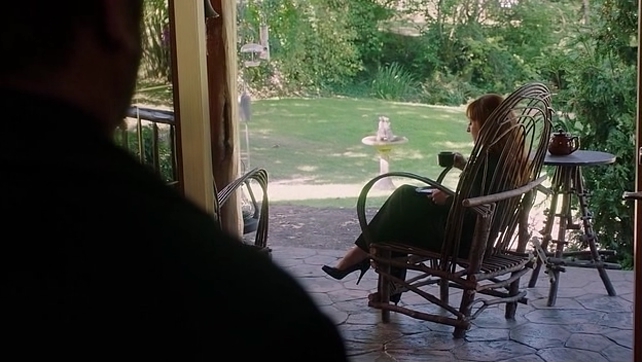
Rowena’s managed to live for 300 years. She’s done so on her own terms. Since her introduction, she’s made sure to do everything in her own self-service to ensure her own safety. At every turn, she’s made the moves necessary to keep herself intact—even when it looked like she might have met an untimely end. This time is no different—and yet it is completely different. Rowena thrives on intrigue—but she needs to control that intrigue. The Lucifer situation spiraled way beyond her control and she hadn’t anticipated that he’d reward her with death for freeing him. She’d rather go back to manipulating for her own ends rather than working for anyone else—and by breaking free from Lucifer’s hold she’s going to do just that.
As Castiel and Crowley arrive on scene, she’s aware that they’re here for Lucifer. She tells them that they just missed him—and then offers sweetly, “Cup of tea?” Both the angel and demon are amazed that Lucifer’s no longer there—and that Rowena somehow managed to get rid of him. On Crowley’s face, there’s a brief flicker of relief. He’d never voice it, but Castiel had been right about wanting to save his mother. Learning that she’s done so on her own has made some pride bloom in the former King of Hell—as well as some trepidation that the other shoe will fall and she’ll eventually get even with him for leaving her in Lucifer’s clutches in the first place.
Crowley’s also hoping to bring his mother back into the fold—as is Castiel—and she quickly refuses, stating, “Good God no. That whole FBI pantsuit look, not my hex bag. But if you get Lucifer cornered and find yourself in need. I’m there.”
Rowena wants to help them when the time comes, but she’s choosing her level of involvement and she’s making her own path. In many ways, Rowena’s making her own rules.
And yet, it is through Mary that we really see Supernatural give a female character real depth and strength.
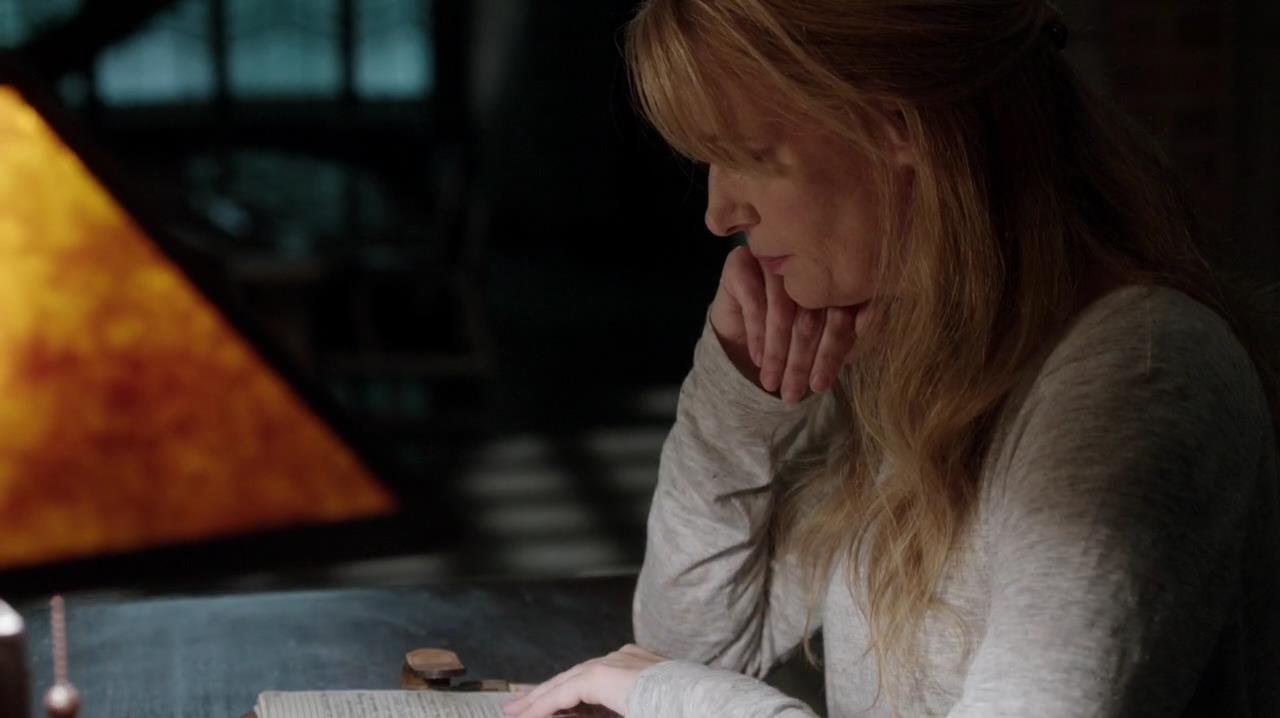
At the very beginning of the episode, Mary sits with John’s journal, paging through it. She’s bewildered and overwhelmed by the horrors she’s encountering there. The man she married, the man she loved is in those pages—and yet he’s gone, too. The man who wrote those words remains a stranger. This isn’t the man she married anymore. It’s only one example of her new reality—and the difficulty she has with it. Castiel joins her and she questions, “Castiel. After you left Heaven, when did it start to feel like you fit? Like you—belonged here.”
Castiel responds, “Well, I’m not sure I do. Mary—You do belong here.”
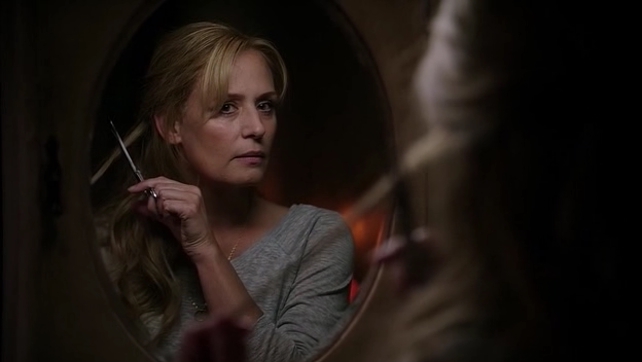
Mary needed to hear that—but still struggles. She stares into a mirror and raises a scissors to her long hair, cutting it. It is the first step to reclaiming herself—of making her own path and finding her own power. Mary’s not in control of much. She’s still trying to understand the nature of technological advances. She’s coming to grips with the fact that her sons are both grown men—brought up in the life in her absence. She’s adrift in a world without her husband. Mary’s trying to find anything she can control—and her hair is as good of a place to start as any. And so, she shears it away.
As she joins the brothers for breakfast, she informs them that she’s found a case. She read through the newspapers Dean brought back for her and stumbled across it. A couple in Minnesota ended up dead in a house—with no cause of death released. They had called 911 about a crying baby. The story sounded “fishy” to Mary and she wants to stretch her legs back out in the field. This is the first case she’ll tackle since her resurrection—aside from saving Sam, of course.
However, Mary didn’t count on her sons wanting to join in. Dean’s eager to have a “family hunting trip,” and while she accepts their assistance, her voice sounds wary. She’s begrudgingly given in—unsure how they’ll work together as a team. She had hoped to see if she could still do this. She had wanted to take on this case to see if she still wanted to do this. Now, she has to add her sons into the equation and find a way to balance it. It’ll make her adjustment a bit more difficult, too.
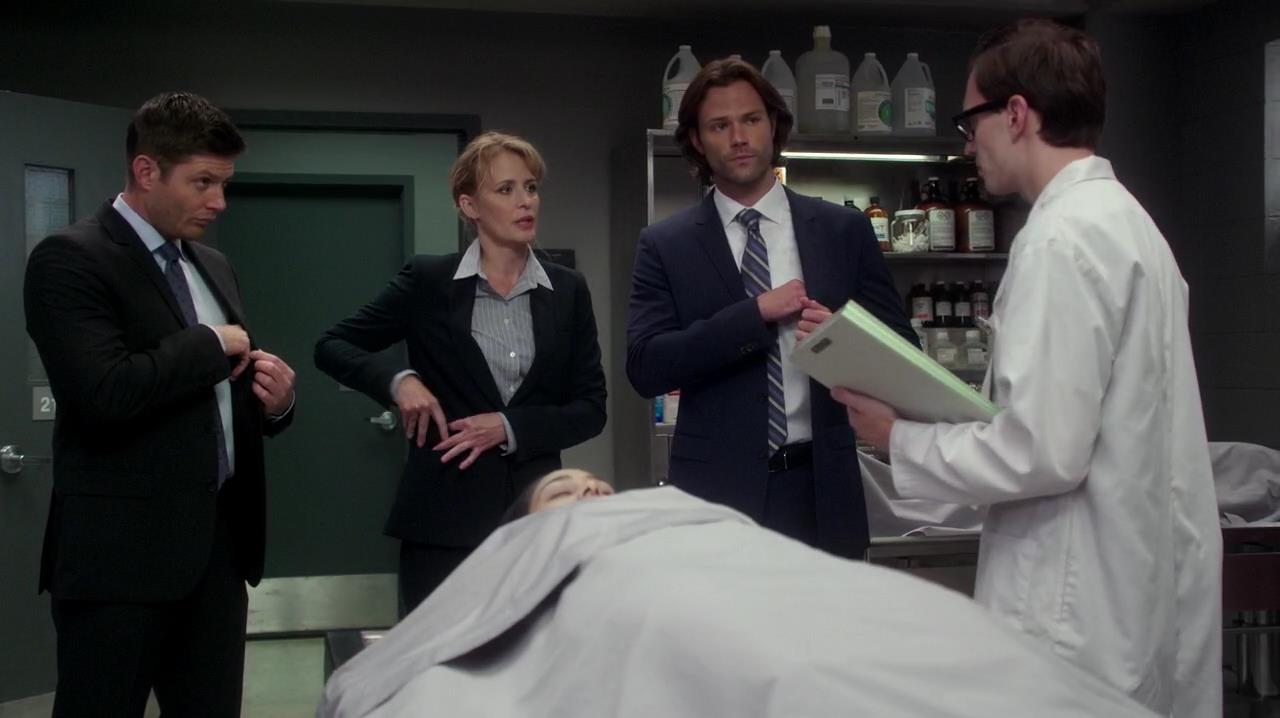
They head to Minnesota and stop at the coroners. Mary quickly takes the lead, introducing everyone and starting the line of questioning. She knows how to do this and she’s comfortable with this part. She’s also hoping to see just how adept her sons are at this—and she’s not disappointed. Dean notices a burn on the victim. Sam mentions that they’ve yet to file a report stating anything about the unusual characteristics of the deaths. Quickly, Mary can see that her sons have formed a routine as they work cases.
The question becomes: is there any place for her in it?
This continues when they enter the house, each armed with an EMF detector. She reassures Dean for the third time that she’s okay. She says, “Dean, it’s analog. I’m good.”
As the brothers go one direction, Mary is pulled towards a room—the same one the couple found the source of the crying baby. She steps in, watching the single light bulb over the bed sway and flicker, the sound of a baby’s cry piercing her. As she nears and cautiously reveals the broken doll in the baby blanket, Sam and Dean call for her. She’s unable to leave the room as the door slams shut and she’s forced to call for her sons. While they break down the door, the spirit of a boy confronts her.
His touch is frigid—burning her wrist just as the other victims. As she’s starting to succumb, Sam and Dean rush in. Sam pulls her away and Dean takes out the ghost. The encounter nags on Mary, though. Her instincts scream that there’s more to this case than a vengeful spirit—or the lore Sam’s dug up on the Internet about mylings. The little boy hadn’t felt angry or dangerous. She tells them, “Maybe, but, all I know is that little boy that grabbed me—he didn’t want to hurt me. He was scared.”
Mary’s motherly instincts are kicking in—and she wants to help.
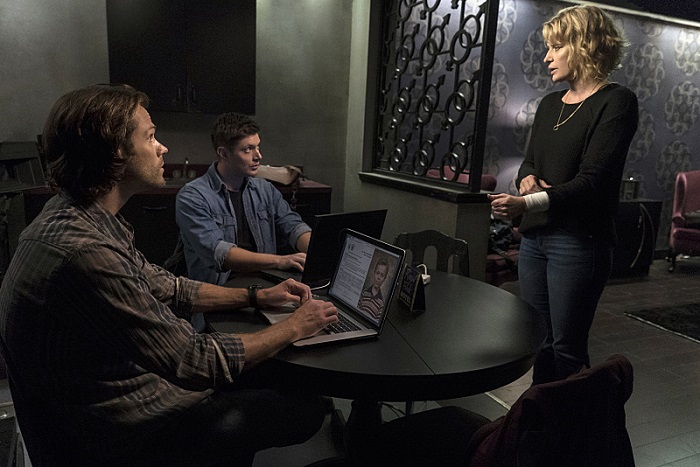
Mary’s eager to take the next phase of the investigation. She’s ready to talk to some witnesses. She wants to find out from the locals about the stories they’ve heard about the Chamberlain street house. Sam and Dean inform her that canvassing like that to learn the history is somewhat archaic. The Internet has made that “obsolete” since they can hack into the police servers and learn all they need to know about the previous cases. They’ve learned in that short span of time that the first case dates back to 1978 and that there’s been several instances from then on.
It leaves Mary floundering. She had taken on this case to find some control in this environment, and now she’s finding that her skills and her expertise are rusty or plainly out of date. She’s not savvy with this digital world. Mary wants to work this case, but she just doesn’t seem to have the tools that her sons possess.
And yet, it won’t leave Mary sidelined for long.
Before she can recover from this latest setback, though, flashes of the night she died bombard her. She’s back at the house the night Azazel murdered her—hearing Sam’s cry. It’s mixed in with the baby she heard at the Chamberlain house. Lastly, the little boy she met there implores her. He begs, “Help me.” It leaves Mary shaken—and she takes a page out of the Winchester playbook insisting that she’s fine. She’s not quite sure what she’s just seen—or how to even voice it.
Sam and Dean accept that—after a bit—and decide to put the case to rest by salting and burning all the children. They think Mary should stay behind, however, shaken by whatever caused her dizzy spell. Mary yields and accepts the cellphone from Dean—and yet the moment they leave she picks up the hotel landline and calls the city chamber to acquire information on the last owners. She’s flippantly told to use the Internet like everyone else—to which she retorts, “I’m not everyone else.”
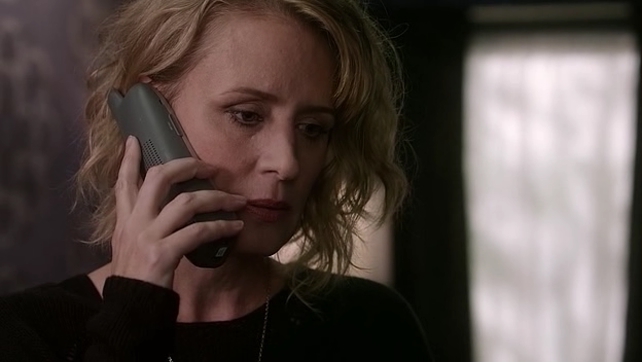
This is Mary’s real first step in finding her own power. She’s cut her hair and taken on this case—but her sons have done so much of the heavy lifting. If she’s really going to do this, she’ll have to do it her own way and on her own terms. She calls the mother of the last victim, making a personal connection. The mother’s grief is familiar—and relatable. This is the element of hunting that Mary enjoys. She knows she’s helping someone, that there are people involved, and that this is real. She’s hearing her own story through this woman, too. The loss of her child reflects how Mary feels about her current situation. Her sons are alive and grown—but her grief shines for the little boy and baby they once were in this conversation. She doesn’t have any memories of them growing up—and that pain pierces deep in her heart. Mary isn’t pushy or greedy in her questioning. She simply lets this woman tell her what happened and open up about it in a personal one on one phone conversation. At the end, the mother, Cheryl, states, “Actually, it’s kinda nice. No one talks on the phone anymore, you know?”
Mary’s learned that the little boy she met was named Lucas—a shout out to season 1’s “Dead In the Water” and a call out to Dean’s inability to speak after her death. He has a scar on his cheek from a dog attack. He died mysteriously in his bed—and his mother hadn’t been able to stop it after just checking on him moments earlier. The story is fresh and visceral for Mary. Take away the freezing ghostly death, this is precisely the events that led to her own demise in Sam’s nursery thirty years earlier. This ghost was somebody’s baby—someone’s little boy. She’s finding that grief raw and powerful—and by helping Lucas she can perhaps deal with some of it here and now.
Mary chooses not to wait for Sam and Dean’s return. She wants to do this her way—she has to face this grief alone and reclaim her own power as a hunter. She returns to the house and finds Lucas waiting. She approaches him slowly, dropping her weapons bag and hiding the iron crowbar behind her back. Lucas isn’t threatening. He needs her help. The mother in her can see that in his expression. Mary won’t harm him if she doesn’t have to—she just needs to know what he’s trying to tell her. He leads her to a basement door, pointing.
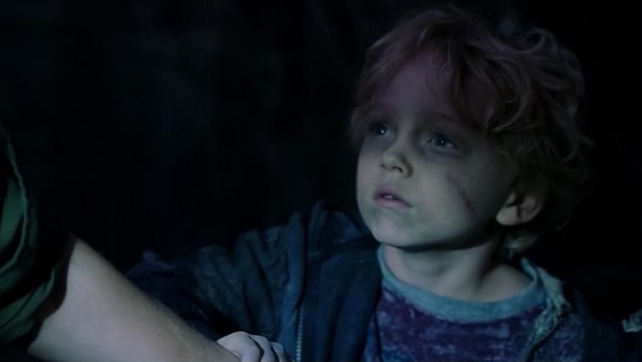
Jimmying the door open with the crowbar, Mary ends up in the basement, confronted with a question. Why had the little boy brought her here? He points at the wall and says, “Him.” Clearly there’s another body in the walls—one that holds these children captive here in this house.
Sam and Dean call her and tell her to get out of the house. The cellphone breaks up, making it hard for her to understand. As she hears noises through the house, Mary charges upstairs, sliding to reclaim her weapon. It is too late. The ghost of Hugo, the father of the first child to die in this house, has found her. He is an angry spirit, possessive of the child ghosts in this house. Mary aims her shotgun at him only to be pulled close and his hand freezing over her heart. He isn’t going to kill her—he’s got a bigger plan in mind to protect his home from these hunters.
Mary collapses to the floor as Sam and Dean rush in. Quickly, her own will is overpowered by Hugo’s and her body lashes out at Dean, elbowing him in the face. Hugo tosses Sam against a bookcase and moves to choke Dean against a wall. The ghost snarls, “My house. My children. Forever.”
Without realizing it, it is the reverse of her protective and sacrificial action back in “Home,” when she was a ghost saving her children from an intruder.
In a parallel sequence to when John had been possessed by Azazel, holding Dean in a similar fashion while Sam struggled against a telekinetic hold, Mary replicates that now while Hugo’s spirit threatens to kill her sons using her body. Dean pleads, “Mom, you have to fight this.”
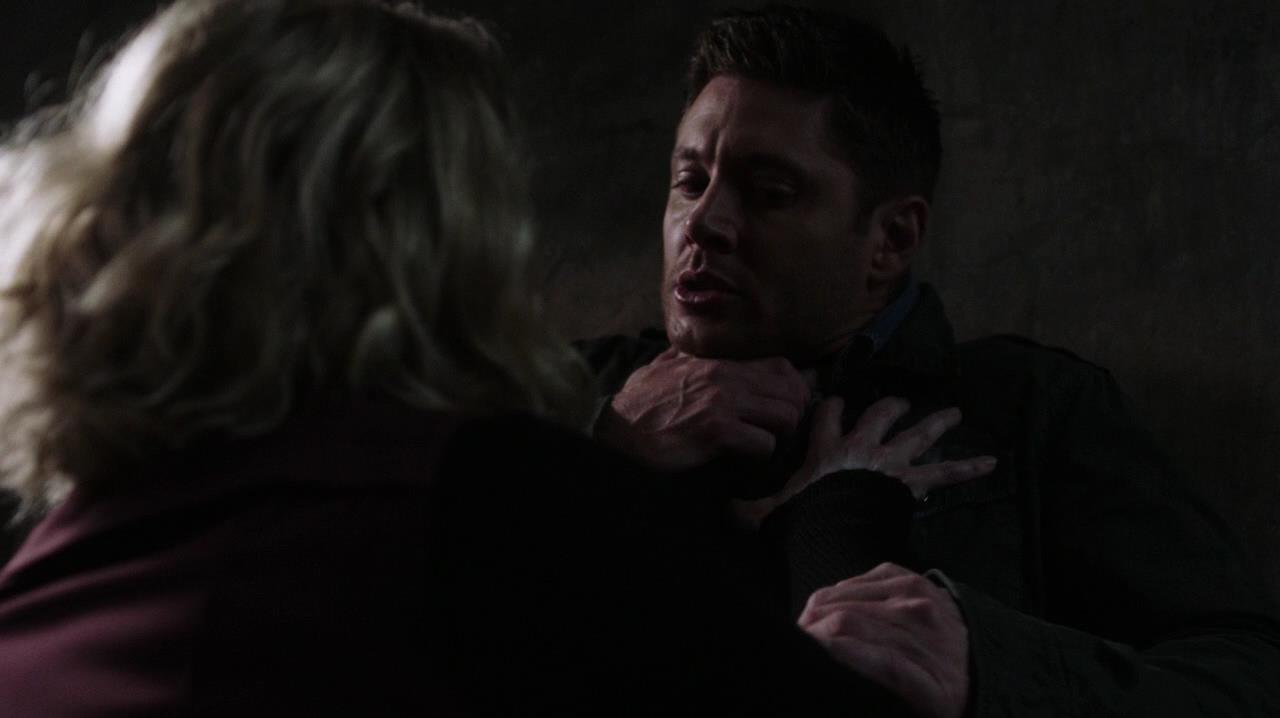
It is through Mary’s tenacity and love for her sons—even ones that seem like strangers—that she is able to find even a moment of clarity to break free. Mary hasn’t returned to this life to harm her children. Much like the poltergeist that had threatened her sons in their home back at Lawrence, Mary isn’t about to let this ghost kill them—and her. In that single moment of freedom, she orders Sam to the basement, freeing him.
As Dean moves to get the chain to wrap around his mother and force Hugo’s ghost out completely, Mary loses control. He snarls through her lips, “Mommy’s gone.” As Sam smashes the wall and burns the body, the ghost is forced from her and they watch as all the children gather around their vindictive and evil murderer. He had been using them as a power source. He had killed them to keep them with him.
And yet, it isn’t that cut and dried. Upon returning to the Bunker, Mary remains shaky. She’s not sure this has helped her in the way she’d hoped. Her sons are with her, but she tells them, “I know. In my head. But I’m still mourning them as I knew them. My baby Sam. My little boy Dean. Just feels like yesterday we were together in Heaven, and now I’m here, and John is gone and they’re gone. And every moment I spend with you reminds me of every moment I lost with them. And I thought hunting and working would clear my head—”
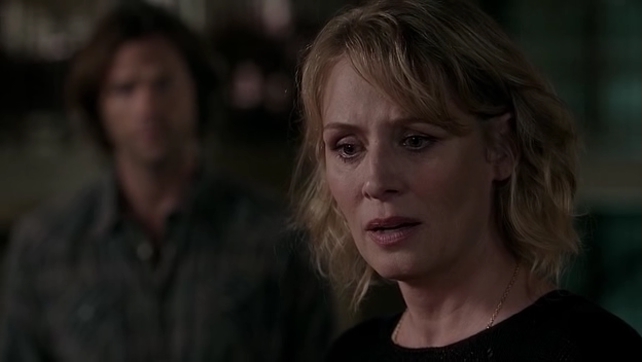
In a way, it has cleared her head. She’s finally facing the grief that’s haunted her from the moment she learned Dean’s identity and the truth about her husband. She’s confronted with the pain she’s been unable to grasp since learning that her sons ended up hunting—despite her attempt to give them the “apple pie” childhood she’d never had. She’s mourning the chance to be a true mother to them—to see them grow up. She’s mourning the time she’s lost in Heaven—plagued perhaps by the time she was there after her death. She’s struggling with the aftermath of having to rescue one of her sons—one that seemed a complete stranger to her as he had only been a baby the last time she’d seen him. Having to endure Hugo’s madness and grief has exposed this truth to her.
After all, she had hurt her sons in the process of this hunt. It may not have been seriously, but she’s haunted by that, too.
Mary hasn’t had a chance to truly breathe or understand what has happened to her. This case has given her so much food for thought—and allowed her to find her own power. She’s been trying to be Sam and Dean’s mother. She wants to be with them—and yet it hurts too much right now. It adds to the jumble in her head and makes it difficult to sort out her place. Even though it hurts her, Mary tells them, “I have to go. Sorry. I’m so, so sorry. I just need a little time.”
Mary’s decision is made and it is final. She needs to make her own path. In no way is this the same as running away from the life after Azazel destroyed her family. She’s not desiring to get out of hunting to settle down into an “apple pie” life. Mary’s instead entering into the beginnings of a journey—who she is now and what she wants to do with her second chance. She’s not done being their mother—but in order to adjust she must find her own way.
She approaches her eldest and tries to embrace him only to have him step back. Grabbing her husband’s journal, she nears her youngest and embraces him tenderly. Mary tells him, “I love you. I love you both.”
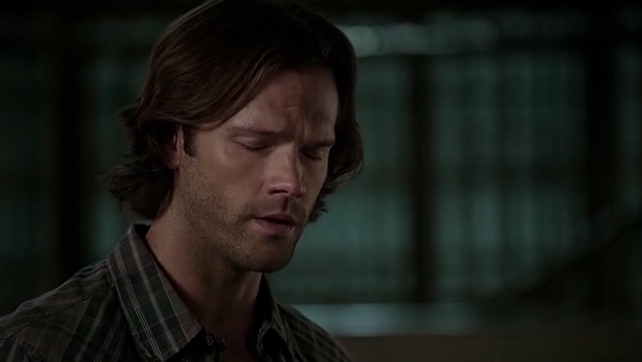
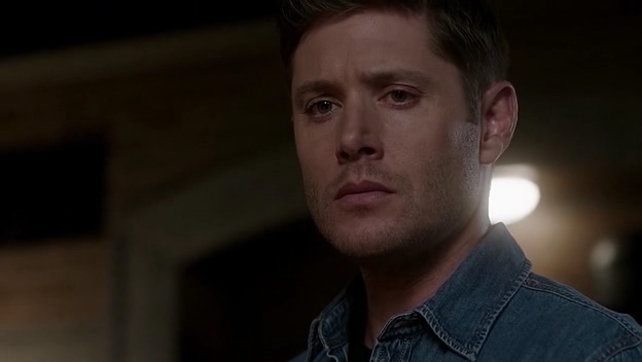
As she exits, the full impact hits the brothers as the door clangs shut. Sam flinches and Dean’s face hardens.
In this way, Mary’s story has left an impact on the Winchester brothers. They have only just recently had their mother returned and now she has left them. To Dean, it is as if his other parent has abandoned him the way their father so often did in the past. To Sam, it is as if the mother he’s always yearned for has rejected him. And yet, deep down, both know that it’s much more complex than these initial reactions.
Throughout the episode, they had several discussions about how she was handling this resurrection. Dean took the tact of denial—convinced that his mother was just fine and would have no problem fitting into their family. Sam, on the other hand, could sense her floundering. He tells his brother that their mother seems withdrawn and shaky. Dean retorts, “Of course she’s shaky. She hasn’t been on this planet since Jane Fonda was wearing leg warmers.” As far as Dean is concerned, all Mary will need is some R&R and some quality family time. It’ll help her adjust and they’ll be able to put this behind them in no time.
It doesn’t hurt matters—in Dean’s view—that their family time will be working a case together. Dean’s focused on the similarities he shares with his mother. She likes bacon—even when it’s cold. Dean boyishly crows, “Wow. We are so related.” He’s eager to share snack fare with her, pleased that she seems delighted with his favorite jerky flavor. Mary shares her son’s love for loud rock music in the car—despite Sam’s weak objections from the back seat that they turn down the loud “Born to Be Wild.” Instead, Mary turns it up, sitting back to enjoy a familiar song. Dean takes this in stride, pleased that his mother agrees with him. Dean’s spent his whole life wanting to know his mother—and now he’s had a just how much he’s like her out of their parents. This should be a smooth transition, the more they can bond like this the better it’ll be for Mary to fit in and adjust.
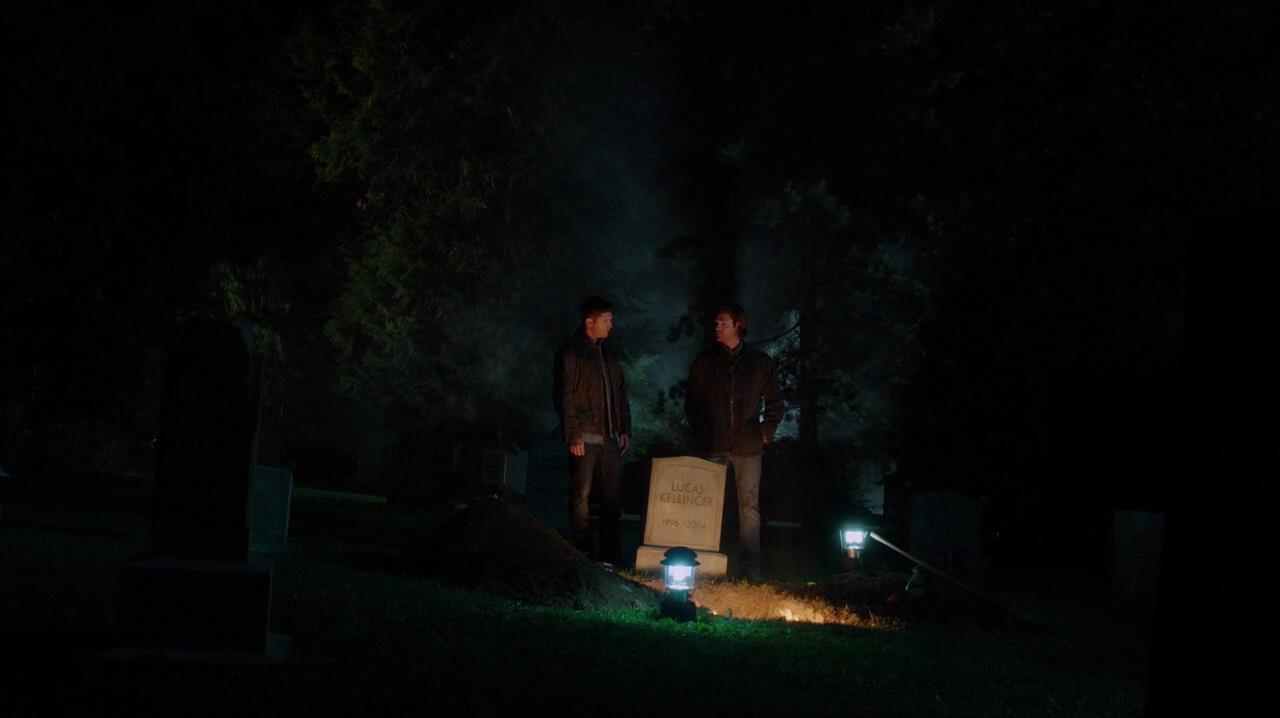
Sam’s not so sure. As they’re salting and burning the children’s remains, he brings up more concerns to Dean. He can tell that this is more than just being wobbly after being gone for such a long period. He can sense that his mother isn’t as happy or as content to be in this world again. She’s struggling with all the major changes that have taken place in her absence. And it’s not simply about the significant changes in technology, snack foods, or the methods used in hunting. Sam wants them to address the problem so they can help their mother deal.
Dean resists. He wants to bask in the happiness of having his mother returned. He wants to celebrate her resurrection and second chance. Amara gave them their mother back and this is a gift he doesn’t want to waste. She’s here, she’s real, and she’s alive. That’s all that matters. Dean tells Sam, “She’s back. I mean, yeah, she’s still working out the kinks, we’re all still working out the kinks, but can we for once just not turn everything into a problem? Can we for once have one good thing?”
It’s not that simple. Sam understands where Dean’s coming from, but he also knows that she deserves more than simple R&R or a family hunting trip. He tels Dean, “No, she’s struggling. I mean she’s trying to bury herself in hunting to avoid dealing.”
Sam finishes, “Like mother, like sons.”
Dean scoffs at that, too. It’s difficult to think his mother isn’t adjusting. It’s taking the joy and relief at having her returned and making it a bit sour for the elder Winchester. After all, Dean’s spent his entire life wanting his mother back—the woman who sang to him or tucked him in. Now she’s here and she’s finding her new reality difficult. Dean wants desperately for it to just work.
And yet, neither brother seems to know where to begin helping her adjust. In many ways, they shouldn’t meddle. This isn’t so much about them as it is about her—and she must find these answers on her own if things are ever going to work. On the other hand, they know better than most what she’s enduring—both have had extended times before a resurrection or a return and found the world going off tilt when they came back. Both also know that it’ll take time. Rushing or forcing—or ignoring as Dean’s desperately trying to do—will only exacerbate the problem.
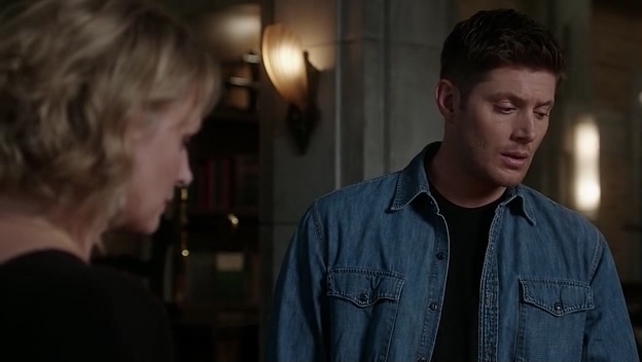
That doesn’t mean, however, that her leaving won’t hurt. Both brothers have yearned for their mother for decades. They’ve found her absence a huge hole they’ve never managed to fill. In many ways, since the very beginning, both Sam and Dean have been on this quest to find their mother. Supernatural may have begun as a story about two brothers on the search for their missing father—but in reality it’s always been about their search for Mary. She’s the one that’s been absent all this time—she’s the one they’ve truly sought. With her return, that “blank” had finally been filled and now she’s gone again.
It also hurts because deep down they both feel somewhat at fault. Had they let her take on this case alone, perhaps she would have found her way back and cleared her head. Maybe they shouldn’t have “hijacked” or “sidelined” her. The Winchester brothers may needle themselves with doubts about what happened during this case—wondering just what they had done to make her leave.
It’s not their fault—and even if Mary had worked this case solo, it is likely that she would have gone off on her own anyways. She needs the space and the time to truly understand what this world offers her and where she goes next. “The Foundry” set up a wonderful journey arc for Mary—and its beginning steps are here. In many ways, she, too, must search herself—just as her sons have spent their lives searching for her.
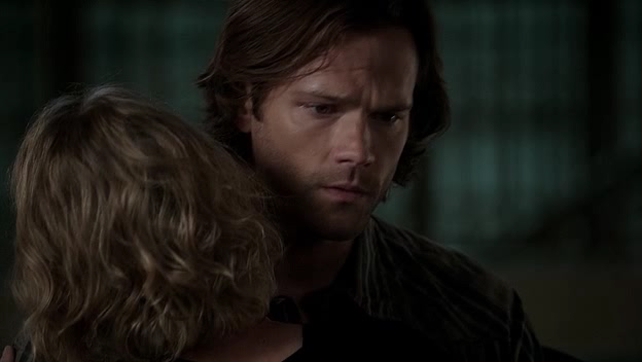
In order for Mary to be their mother again, she must find Mary again. In order for the Winchester family to be a true family—mother and sons—it means she’ll have to do this in her own way.
It’ll just take time.
Side note: Having this episode take place in Minnesota hit home for me on many levels. The fact that this case dealt with children’s mysterious deaths and ended with an adult spirit as the culprit really had emotional thrust. Those of you who aren’t from Minnesota may not be as acutely aware of the Jacob Wetterling case. I grew up hearing about Jacob most of my life. He was 12 in 1989, and I was 7. His disappearance has haunted my state—until this September when tragically his remains were finally found. His murderer had finally confessed to the location and they finally got to bring Jacob home. Since then, the local Minnesota stations have been updating almost constantly on the case and the history of the case. So, this episode’s coincidental focus on mysterious children deaths really had impact. If you’re interested in how you can help missing children, you can visit the Jacob Wetterling Resource Center and learn more.
Secondly, Jerry Wanek did a great job on the hotel room for this episode. The purple fit in perfectly and the glimpse of Prince’s symbol was a grand gesture. Those of you who don’t know, Prince’s home of Paisley Park was recently made into a permanent museum in Chanhassen, MN.


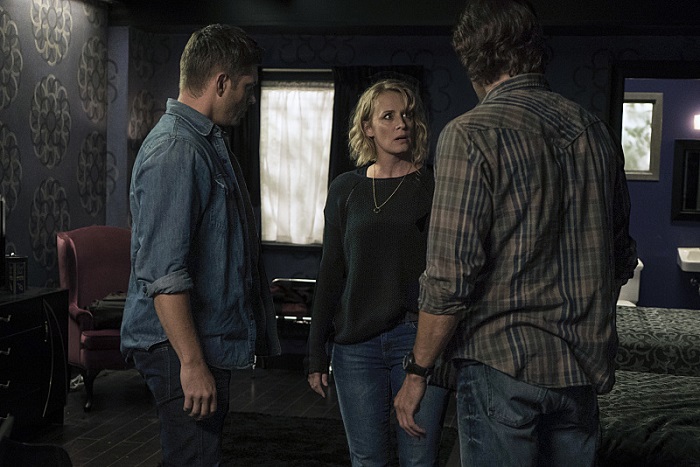
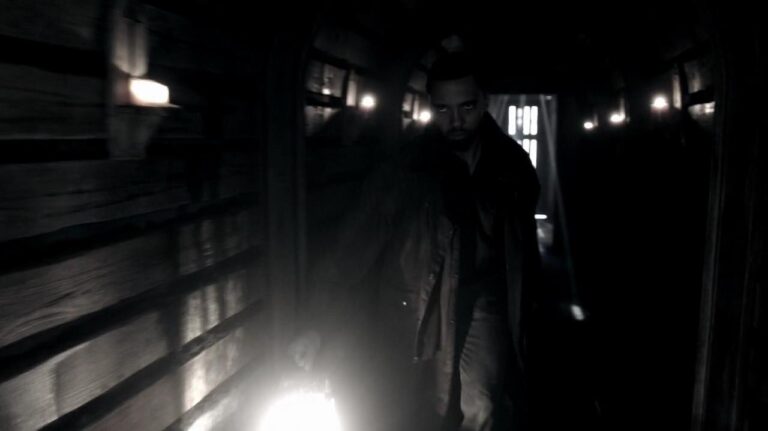
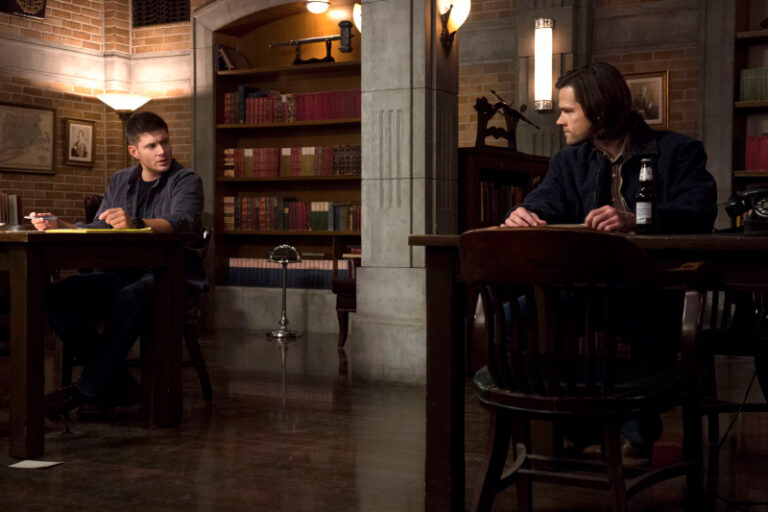

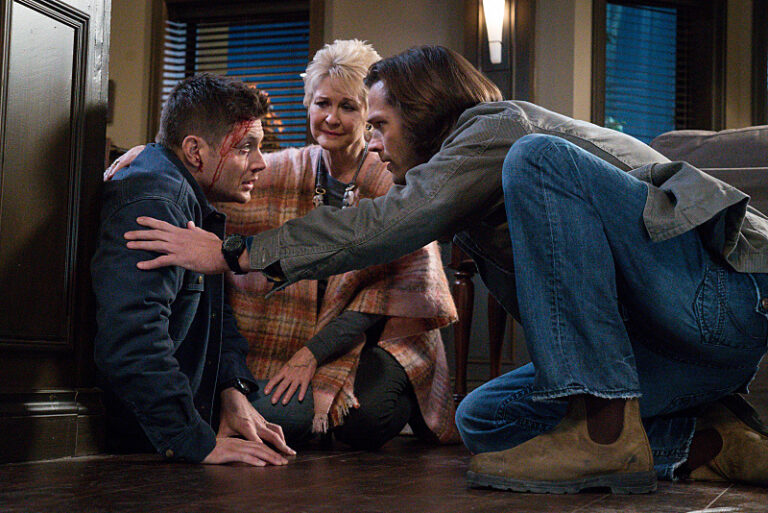
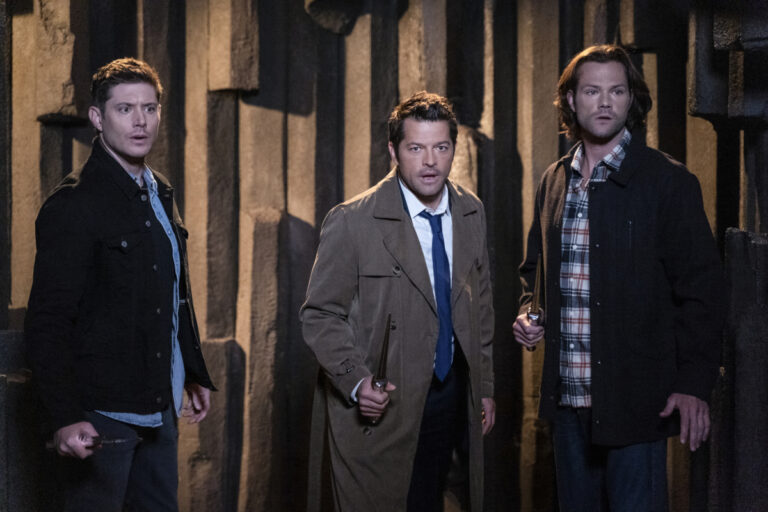
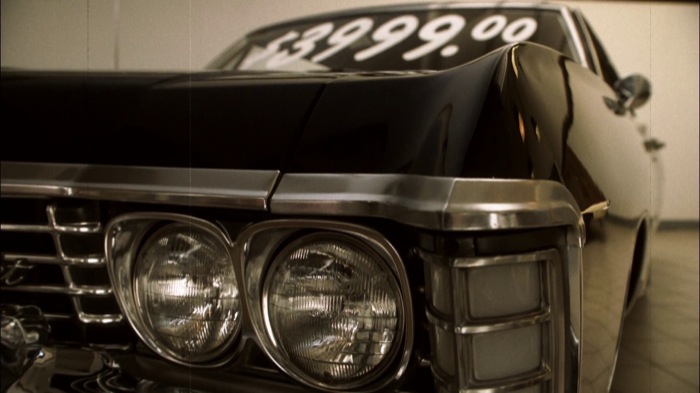
Leave a Reply